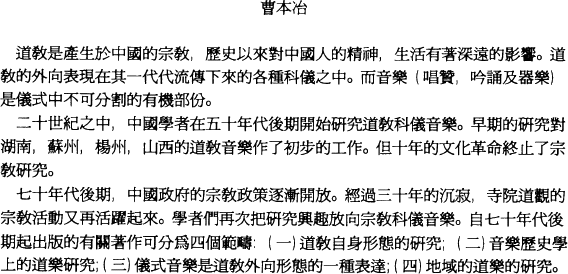Published online by Cambridge University Press: 07 March 2019
As a major indigenous religio-philosophical tradition of China, Taoism has played an important role in the life of the people of China for well over eighteen hundred years. The outward expressions of Taoism are its rituals, passed on from generation to generation by Taoist ritual specialists throughout the centuries. Music (recitations, chants, and instrumental playing) is an integral part of these rituals. Early study of religious Taoism had been limited to the collecting of written sources and the compilation of these sources into the multi-volumed Daozang (Taoist canon), a massive work compiled over a period of fifteen centuries.2 The Taoist canon contains two collections of notated chants: the Yuyin fashi (Jade sounds of [Taoist] rituals) and Darning yuzhi xuanjiao yuezhang (The great Ming imperial Taoist ritual music), respectively contained in Volumes 333 and 616 in the Taoist canon.

This is a revised version of a paper read at the 31st ICTM World Conference in Hong Kong, July 1991. We thank Bell Yung for his useful suggestions to our earlier draft.